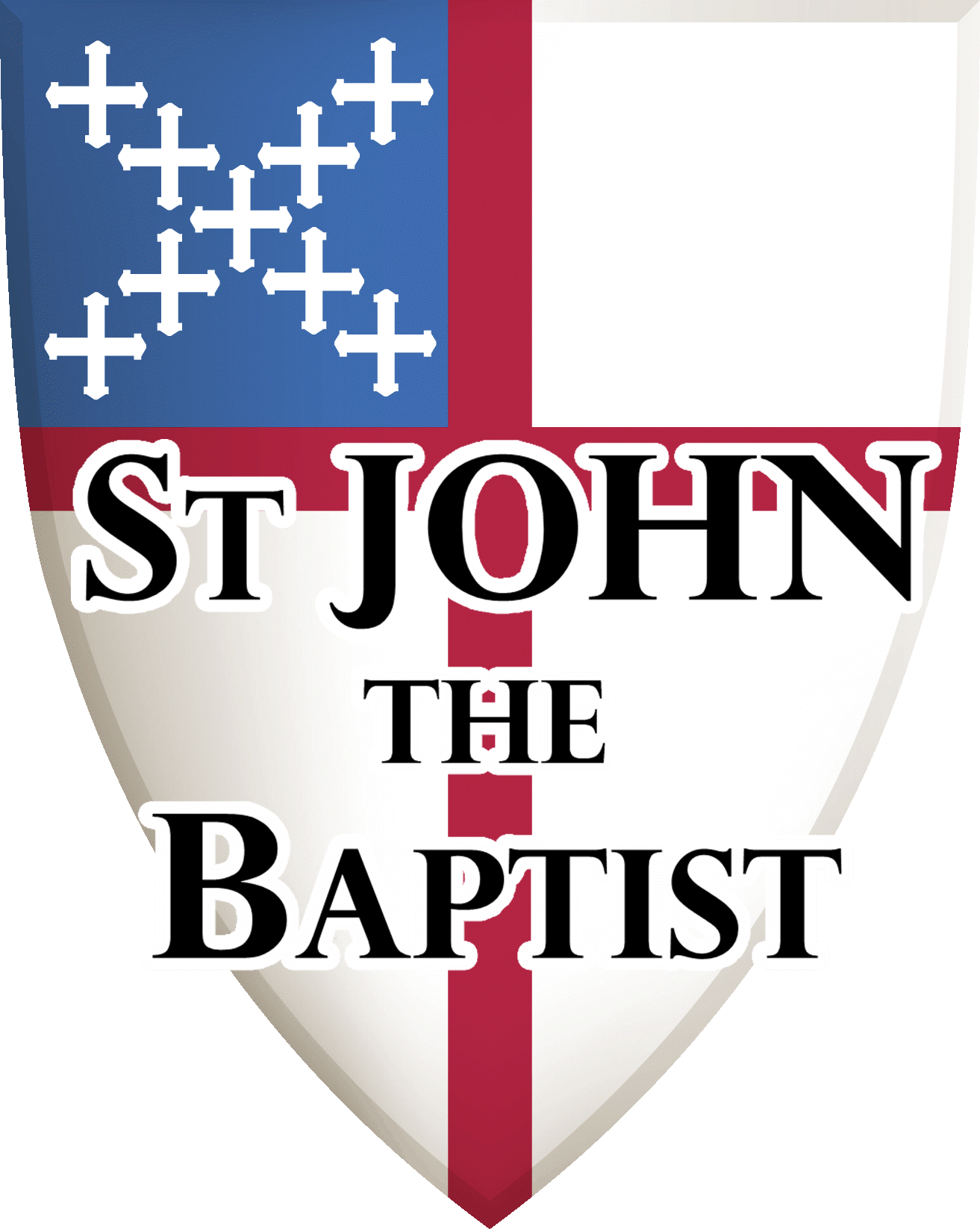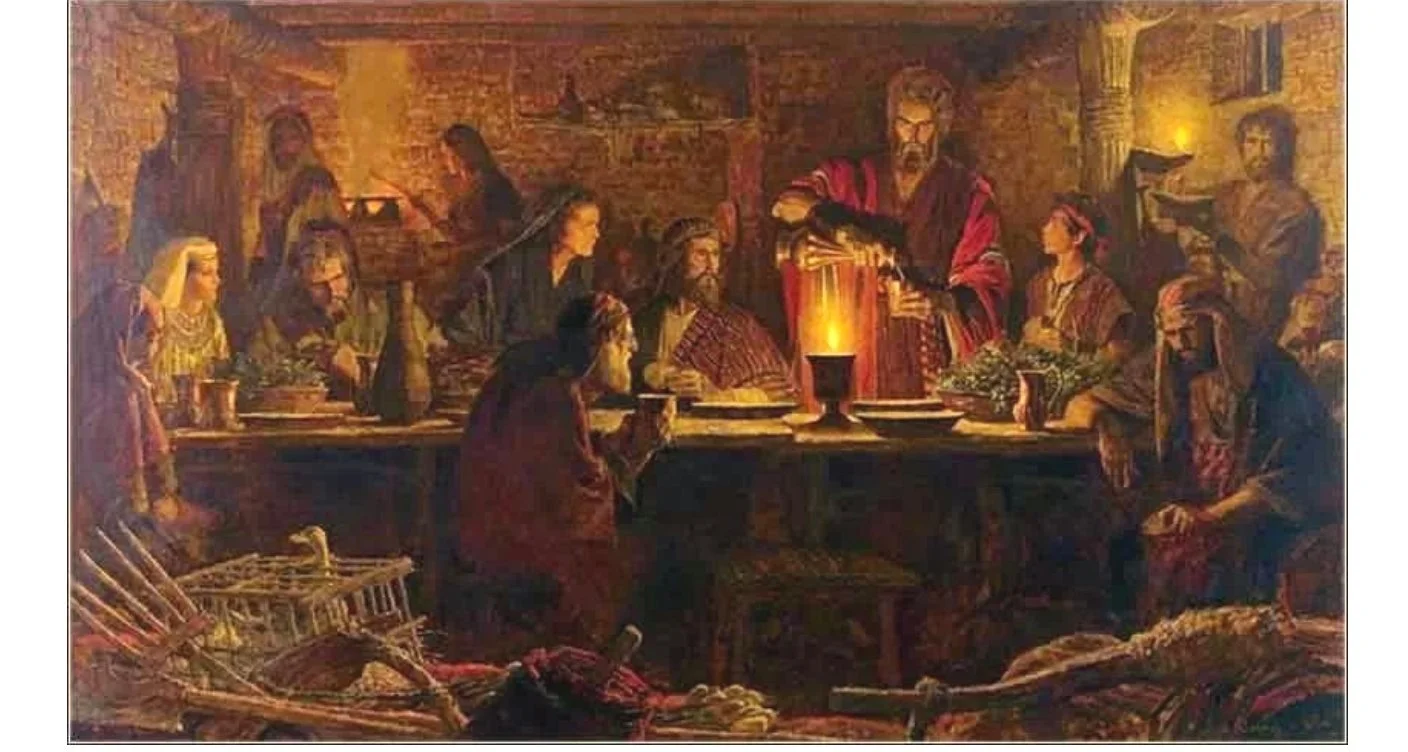Exodus 12:1-14
12The Lord said to Moses and Aaron in the land of Egypt: 2This month shall mark for you the beginning of months; it shall be the first month of the year for you. 3Tell the whole congregation of Israel that on the tenth of this month they are to take a lamb for each family, a lamb for each household. 4If a household is too small for a whole lamb, it shall join its closest neighbor in obtaining one; the lamb shall be divided in proportion to the number of people who eat of it. 5Your lamb shall be without blemish, a year-old male; you may take it from the sheep or from the goats. 6You shall keep it until the fourteenth day of this month; then the whole assembled congregation of Israel shall slaughter it at twilight. 7They shall take some of the blood and put it on the two doorposts and the lintel of the houses in which they eat it. 8They shall eat the lamb that same night; they shall eat it roasted over the fire with unleavened bread and bitter herbs. 9Do not eat any of it raw or boiled in water, but roasted over the fire, with its head, legs, and inner organs. 10You shall let none of it remain until the morning; anything that remains until the morning you shall burn. 11This is how you shall eat it: your loins girded, your sandals on your feet, and your staff in your hand; and you shall eat it hurriedly. It is the passover of the Lord. 12For I will pass through the land of Egypt that night, and I will strike down every firstborn in the land of Egypt, both human beings and animals; on all the gods of Egypt I will execute judgments: I am the Lord. 13The blood shall be a sign for you on the houses where you live: when I see the blood, I will pass over you, and no plague shall destroy you when I strike the land of Egypt. 14This day shall be a day of remembrance for you. You shall celebrate it as a festival to the Lord; throughout your generations you shall observe it as a perpetual ordinance.
Today’s first reading from Exodus may have seemed a bit boring with all the details about the Passover supper. For those of us who oversee holiday meals, we all know the numerous rules which make for a successful dinner. In our home, and I am sure it’s the same for your home, it begins with the grocery list, checking that you have all the spices for baking the turkey, for seasoning the vegetables, for preparing the biscuits. Will they like that white wine or should I also get a Rose, will the children enjoy the cider or should I get soda, will my nieces bring the coquito, our favorite Puerto Rican coconut rum cocktail? Do you have those special tablecloths for the different occasions? Of course you must take out the good china, silver and crystal. Paper plates are just anathema in our home.
Just ask Carl, who washes all the dishes.
If you plan for the holiday begin weeks ahead, you will sympathize with that first Passover meal. The Hebrew slaves were about to begin a new life. For weeks, they witnessed God overturning Pharaoh with the multiple plagues from blood in the rivers, to frogs overrunning the palace. The final and deadliest plague would happen that night: the deaths of the first born from Pharaoh’s son to the son of a slave.
The Jewish people would gather in their homes on the eve of that most awesome final plague and share a ritual meal. They would enter into their houses as slaves and mark the doors of their homes with the blood of the lamb they would roast and eat. They would leave those houses as free women, men and children, free people setting off for their new homeland. That final meal would mark the transition from slavery to freedom.
But they were reluctant to leave behind that life of slavery. They were afraid to leave behind their slave identity and enter into that new identity as freed people. When they were caught between the pursuing army of Pharaoh and the Red Sea, they could not believe that God would make a way when they could see no way. When they ran out of meat and bread, when their water jars were empty, they could not imagine that God would send them quail and manna to satisfy their hunger and water from the rock to quench their thirst.
When you think about it, don’t you understand their dilemma? When you find yourself in those situations when it seems as if all your resources are empty, when the old ways just don’t work, when it seems as if everything and everyone is working against you, do you still believe that God will make a way, that God will provide for your need, that God will create something when you feel there is nothing?
Whenever people and communities are in transition, they face those same challenges. We as a community are entering into a significant transition as we prepare for a new priest. You may feel a great deal of anxiety as you face an unknown future with people you do not now know. But you are not alone. God is with you.
Just as God opened the sea and created a way through what the people saw as chaos, just as God fed the people when they were hungry, just as God prepared a home for a homeless people, so God will do those same miracles for you. The Jews had to surrender their familiar patterns of behaving, the anxiety of the transition, the fear of a new identity to meet the God who was coming to them. You too will have to let go of familiar patterns of behaving.
Over the past few years, you have discovered new ways of relating with one another, new ways of exercising authority, new ways of building connections between groups that may have not interacted with each other before. More of those changes need to happen.
We are always in the process of moving from inner slavery to greater freedom. Like our Jewish ancestors, we too have a ritual meal from which to gain strength. Jesus gave us the Holy Eucharist.
We all know that during the Passover meal Jesus shared with his disciples he gave them, and us, the feast of his body and blood, the new Passover lamb who brought a new people into freedom.
Last week, I invited you to the mystery that something in us needs to die in order for something to be reborn. Jesus gives us his body and blood to invite us into that journey, that journey from death to new life. While we, like our Jewish ancestors, resist the new identity of free persons, Jesus bids us join him in that inner surrender of negative energies so that we can become free. As you taste the new Passover meal, the Body and Blood of our Crucified and Risen Lord, ask Jesus to help you in this transition. Ask Jesus to strengthen you, to open new doors for you, to find in this moment the grace of a new beginning. You have already created a new way of being church. Let that new way continue to grow and develop. With Jesus help, you know it will happen.


